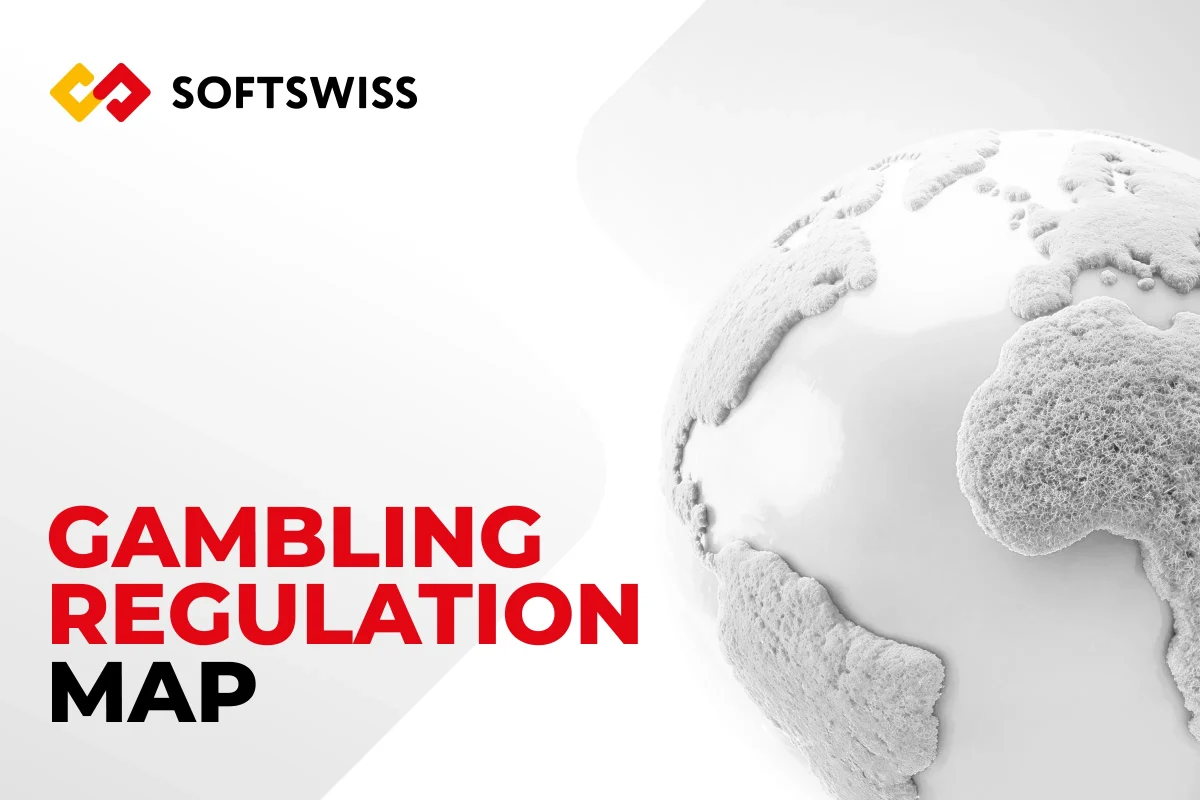Latest News
Continent 8 authorised to deliver second-generation AWS Outposts, ensuring high-speed and high-performance betting and gaming operations
As an AWS Solution Provider, Continent 8 also offers managed services, including Managed AWS Outposts and Managed Hybrid Networking, available via the AWS Marketplace
Continent 8 Technologies, the leading provider of global cloud hosting, connectivity and cybersecurity solutions for the iGaming and online sports betting industry, announces enhanced AWS support to facilitate the deployment and management of the latest generation AWS Outposts racks, driving secure, ultra-low-latency hybrid cloud infrastructures.
The second-generation AWS Outposts, announced at the end of April 2025, offer significant performance enhancements over their predecessors, including faster processing, higher memory capacity and increased network bandwidth for on-premises workloads. Continent 8 enables customers to capitalise on these advancements through the following offerings:
- Managed AWS Outposts service provides comprehensive procurement, logistics, workload migration and ongoing management of AWS Outposts, coupled with unrivalled connectivity and seamless access to all AWS Direct Connect (DX) on-ramp locations. This service allows betting and gaming operators and suppliers to focus on value-added, core revenue-generating activities.
- Managed Hybrid Network service facilitates seamless integration between on-premises infrastructures and AWS Regions, offering the most secure, resilient, hybrid cloud connectivity, bypassing the public internet via a private multiprotocol label switching (MPLS) network.
Continent 8 has extensive experience with AWS Outposts, having provided comprehensive support to operators and suppliers with the initial generation of rack platforms. Today, Continent 8 is responsible for over 90% of AWS Outposts deployments within the regulated betting and gaming industry.
Justin Cosnett, Chief Product Officer at Continent 8, stated, “Our strategic partnership with AWS, along with our deep experience with the first-generation AWS Outposts technology, enables us to provide the requisite expertise for delivering seamless AWS experiences. With the launch of the latest generation of AWS Outposts, we are well-positioned to manage the betting and gaming industry’s ‘business as usual’, day-to-day operations and IT infrastructure needs, allowing customers to swiftly benefit from the platform’s latency and performance enhancements for their most demanding gaming projects.”
Continent 8 is a Gold sponsor of the AWS Community Day Malta on 30 May and will be running a session on ‘Future-ready cloud solutions: winning in regulated markets’.
The post Continent 8 authorised to deliver second-generation AWS Outposts, ensuring high-speed and high-performance betting and gaming operations appeared first on European Gaming Industry News.
Amanda Slonzon VP of Compliance and Regulatory Strategy at RubyPlay
RubyPlay’s US Playbook – Turning compliance into a growth engine

After securing entry into its second US state, and with a third firmly in sight, RubyPlay is sharpening its compliance strategy to balance speed with precision. Amanda Slonzon, VP of Compliance and Regulatory Strategy, explains how the company’s US Playbook is helping to turn regulation into a growth engine, from leveraging New Jersey as a benchmark, to preparing for Pennsylvania’s unique challenges, and building trust-based relationships with regulators and partners across the industry.
When people think about compliance in the US iGaming industry, they often imagine it as the handbrake that slows expansion and stifles innovation. For me, it is the opposite as compliance sits in the driver’s seat. It is not simply a support function but a product in itself that enables us to grow faster, enter new markets with confidence and strengthen our relationships across the industry.
The US online casino market is both highly promising and highly fragmented. Only seven states currently regulate iGaming and each has its own framework. Navigating this landscape requires a deep understanding of both the common threads between states and the subtle differences that can make or break a market entry.
This is why we have developed a US Playbook at RubyPlay, which is a detailed, in-house framework for understanding and applying state-by-state requirements in a way that is tailored to our products and infrastructure. With it, our compliance and regulatory specialists break down each regulation, interpret it in the context of our business, and share that knowledge across the company.
Market comparisons
New Jersey will always be the starting point for most operators and suppliers entering the US. It was the pioneer of state-level regulation and, in many ways, still sets the standard for others to follow. Meeting New Jersey’s requirements ensures a company is well-prepared for other states, many of which recognise its certifications. Delaware, for example, places direct reliance on New Jersey approvals, a pragmatic approach that can streamline entry for those already licensed in the Garden state. But even with these efficiencies, each state demands its own level of preparation and adaptation.
Regulators in the US take compliance very seriously and ensure that every technical aspect of a business meets their requirements. Unlike some EU markets, where providers may not need a B2B license, every US state requires B2B licensing through a thorough, state-specific process. While major shifts are rare, when they occur they can significantly impact the industry. Right now, sweepstakes is the most talked-about development, and with New Jersey’s Governor having recently signed the ban into law, we are seeing a wave of prohibition that will have a major impact across the industry. Our role is to remain attentive, follow changes daily, and ensure we stay as compliant as we intend to be.
Every state also has its own technical standards, licensing requirements, tax structures, and approaches to product approval. For example, Pennsylvania applies the highest tax rate on operators in the country yet remains one of the most attractive among operators. It also has a deeply ingrained gaming culture and a large, active player base. Entering a state like Pennsylvania, which is a key target for RubyPlay in 2026, is not just about passing compliance checks but more about understanding the regulator’s expectations, the market’s economic realities and the cultural context of its players.
Fostering close relationships
One of the most important aspects of operating in the US is the strength of relationships with key stakeholders across the entire ecosystem. I have always believed that a strong relationship with the regulator is just as critical as meeting their requirements on paper. We work to ensure that regulators see us as partners who bring solutions, not problems. We communicate openly and demonstrate that we take their rules as seriously as they do. The same process applies to how we work alongside our industry partners. From platform providers or operator customer, we approach every partnership as a collaborative effort to succeed together.
Culture plays a vital role in how we approach regulation. Compliance is considered a technical discipline, but ultimately it is powered by people who care about getting processes and frameworks robust. I am proud to lead a team that is collaborative and solution-oriented. One of my proudest moments recently came during a recruitment process where I was speaking with a candidate for a role within our compliance team. She told me she had been following RubyPlay closely and was so impressed by our company culture, the pride we take in our work and the way we treat our people, that she was willing to relocate to another country just to join the team. It is a real story that speaks to the environment we have built.
Regulation in the US is not going to advance overnight. The state-by-state approach will remain and evolve, and new product categories will emerge that challenge existing frameworks. My perspective is that the companies who thrive will be the ones who embrace this complexity, invest in understanding it deeply, and treat compliance as a strategic asset rather than an operational hurdle.
The US Playbook we have developed is our way of making that happen. It is an ever-evolving strategy that keeps us compliant, competitive and ready for whatever comes next.
The post RubyPlay’s US Playbook – Turning compliance into a growth engine appeared first on Gaming and Gambling Industry in the Americas.
Aviatrix
Aviatrix partners with TQJ and joins the Bet do Milhão portfolio

The popular crash game Aviatrix has entered a strategic partnership with Brazilian operator Todos Querem Jogar (TQJ) to bring the hit title to the recently launched brand Bet do Milhão.
TQJ is a Brazil-licensed operator and an investee company of the Silvio Santos Group, one of the country’s largest media conglomerates. Its first brand, Bet do Milhão, is inspired by Show do Milhão, the iconic Brazilian TV game show, and debuts with a full portfolio of sports betting and online gaming, with a strong focus on innovation, security, and responsible play.
Through the partnership, Bet do Milhão players will now enjoy the full Aviatrix experience, including one of the most dynamic and engaging crash game mechanics in the world.
Anastasia Rimskaya, Chief Account Officer at Aviatrix, said: “This partnership with TQJ and Bet do Milhão is a perfect fit. Aviatrix is about delivering exciting and intuitive gameplay, which aligns perfectly with the Bet do Milhão concept. This is another key milestone in establishing Aviatrix as one of the most popular online casino games in Brazil.”
Leonardo Sampaio, Chief Operating Officer at Todos Querem Jogar, added: “We want to combine the Brazilian way of having fun with the very best in technology and content available in the market. That’s why bringing Aviatrix to our new brand was a priority. We are excited to build a long-term relationship with the team and are confident the game will be hugely successful with our players.”
Aviatrix has been rapidly expanding in Brazil in recent months. In April 2025, the game received full federal certification to operate via licensed operators nationwide, as well as a dedicated certification for the state of Paraná.
The post Aviatrix partners with TQJ and joins the Bet do Milhão portfolio appeared first on Gaming and Gambling Industry in the Americas.
Compliance Updates
SOFTSWISS Releases Gambling Regulation Directory for iGaming Operators

SOFTSWISS, a global tech provider with over 15 years of iGaming expertise, introduces its Gambling Regulation Directory, a new website section designed to help operators navigate the complex landscape of gambling laws worldwide.
The Gambling Regulation Directory provides a structured overview of the legal status of gambling across multiple countries, both land-based and online. With an interactive regulation table and map (coming soon), operators will gain a clear picture of where gambling is permitted, restricted, or prohibited, and evaluate the opportunities, risks, and compliance requirements for entering or expanding into specific markets.
The country profiles also highlight which activities are allowed or prohibited, outline available information on taxation, fees, and licensing terms, and outline key licence details such as duration and permitted activities. In addition, each profile indicates whether SOFTSWISS products are certified or aligned with local regulations, showing operators where SOFTSWISS solutions are ready for use, and underlining our experience and readiness to support them in these markets.
Practical Value for Industry Stakeholders
- Strategic Planning: A trusted reference point for evaluating opportunities and supporting informed decision-making.
- Efficiency: Centralised, up-to-date regulatory information saves time on research.
- Expert Oversight: SOFTSWISS specialists monitor developments to ensure the Directory reflects the latest licensing and legislative changes.
“At SOFTSWISS, we provide a trusted foundation for launching and growing iGaming brands. With the introduction of the Gambling Regulation Directory, we stay true to our goal of offering advanced solutions and empowering operators with the knowledge and insights they need to grow responsibly and sustainably in highly regulated markets. Building on this commitment, our certified software meets the requirements of multiple national regulators, enabling operators to confidently enter new markets with full compliance,” added Olga Resiga, Chief Business Development Officer at SOFTSWISS.
The iGaming Regulation Directory is an evolving resource. Not all country profiles are available yet, but the SOFTSWISS team is committed to updating the Directory regularly with new jurisdictions and the latest regulatory changes.
At SBC Lisbon 2025, Stand B160, visitors will have the opportunity to explore the new Gambling Regulation Directory and exchange views on industry trends with the SOFTSWISS Team.
About SOFTSWISS
SOFTSWISS is an international technology company with over 15 years of experience in developing innovative solutions for the iGaming industry. SOFTSWISS provides comprehensive software for managing iGaming projects. The company’s product portfolio includes the Casino Platform, the Game Aggregator with over 35,000 casino games, Affilka Affiliate Platform, the Sportsbook Platform and the Jackpot Aggregator. The expert team, based in Malta, Poland, and Georgia, counts over 2,000 employees.
The post SOFTSWISS Releases Gambling Regulation Directory for iGaming Operators appeared first on European Gaming Industry News.
-

 gaming3 years ago
gaming3 years agoODIN by 4Players: Immersive, state-of-the-art in-game audio launches into the next generation of gaming
-
EEG iGaming Directory9 years ago
iSoftBet continues to grow with new release Forest Mania
-
News7 years ago
Softbroke collaborates with Asia Live Tech for the expansion of the service line in the igaming market
-
News7 years ago
Super Bowl LIII: NFL Fans Can Bet on the #1 Sportsbook Review Site Betting-Super-Bowl.com, Providing Free Unbiased and Trusted News, Picks and Predictions
-
iGaming Industry8 years ago
Rick Meitzler appointed to the Indian Gaming Magazine Advisory Board for 2018
-
News7 years ago
REVEALED: Top eSports players set to earn $3.2 million in 2019
-
iGaming Industry8 years ago
French Senator raises Loot Boxes to France’s Gambling Regulator
-
News7 years ago
Exclusive Interview with Miklos Handa (Founder of the email marketing solutions, “MailMike.net”), speaker at Vienna International Gaming Expo 2018















